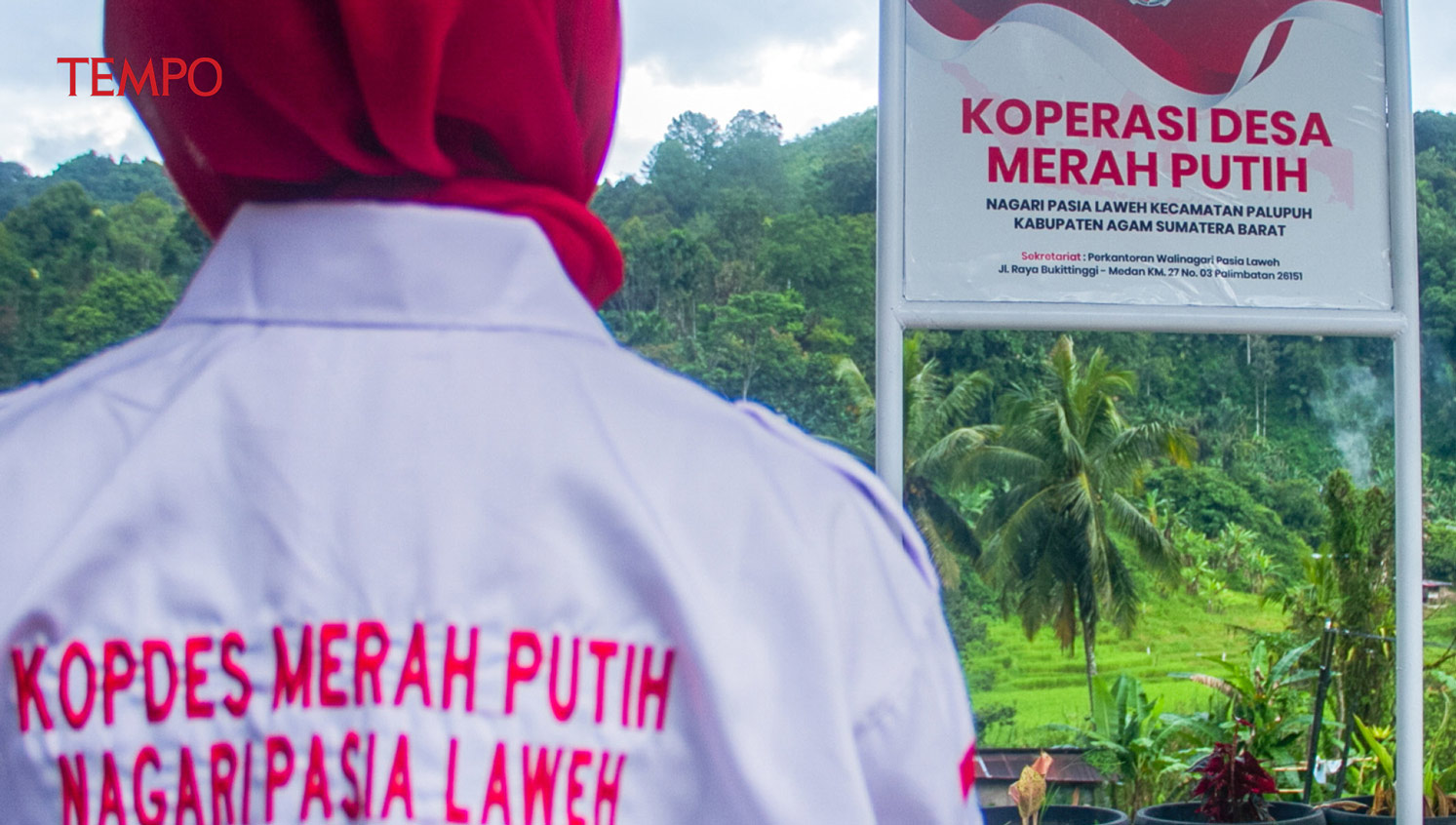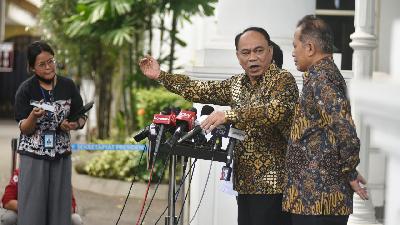The Political Motive Behind the Red-and White-Cooperatives
Monday, April 28, 2025
The establishment of 80,000 Red-and-White Village Cooperatives is rife with political interests. It is a Rp400-trillion gamble.
arsip tempo : 174634136451.

IF he were still alive, the father of cooperatives, Mohammad Hatta, would be unhappy seeing the Red-and-White Village Cooperatives. Without the principles of togetherness, fairness, and collective endeavor, President Prabowo Subianto’s 80,000 cooperatives have been established from the top down. Village heads were ordered to form them according to rules laid down by the central government. This is the latest example of Prabowo’s ‘command economy.’
From the concept prepared by the government, the capital of the Red-and-White Cooperative comes from village funds. This fund will be deducted 20 percent in the first year and 20 percent as debt collateral to state banks in the following year. This scheme violates Law No. 6/2014 on Villages and is also vulnerable to disrupting the overall economy if defaults happen.
According to the Village Law, the fund of Rp1 billion per year is an income source for each village to build infrastructure, meet the basic needs of the people, and for empowerment through village enterprises, or BUMDes. There is no mention of cooperatives in the law or in its derivative regulations.
Cooperatives and BUMDes are two different entities. As in Hatta’s concept, cooperatives are owned by their members, are not oriented towards personal profit, and are based on mutual cooperation. The management is selected through democratic consensus. On the other hand, BUMDes are aimed at making a profit to circulate village funds, and the management is appointed by a directly-elected village head.
The scheme of loans from state banks backed by collateral of 20 percent of village funds could lead to systemic risks to the banking system. This year, the allocation for village funds is Rp71 trillion. This means that next year, banks will pay out Rp14.2 trillion to all these cooperatives. The value of these loans is three times the bailout funds paid to Bank Century in 2008 to head off a systemic banking crisis in Indonesia.
The use of state banks in the political ‘command economy’ program could undermine public trust. An investigation by this magazine has found that the establishment of the Red-and-White Village Cooperatives is Prabowo’s way of returning a favor to village heads for their support in the 2024 presidential election.
The Red-and-White Cooperatives are under the Coordinating Ministry for Food Affairs and the Ministry of Villages and Development of Disadvantaged Regions. Presidential Instruction No. 9/2015, which becomes the basis for their establishment, is at odds with Presidential Regulation No. 147/2024 on the Coordinating Ministry for Food Affairs, which does not mention cooperatives being within the scope of this ministry.
The two ministers who will manage the funding for the Red-and-White Cooperatives are the general chair and a politician respectively from the National Mandate Party (PAN): Zulkifli Hasan and Yandri Susanto. The handing over of large funds to politicians is prone to corruption and misuse for electoral purposes. Then there is the appointment of cooperative managers, which has been ‘allocated’ to Prabowo’s Gerindra Party and Projo, an organization of supporters of former president Joko Widodo led by Cooperatives Minister Budi Arie Setiadi.
The type of business is determined by the central government, which does not necessarily match the needs of the villagers. Moreover, for the businesses of basic necessities, warehouses, pharmacies, clinics, savings and loans, logistics, and cooperative offices have been provided by mini markets or grocery stores. The establishment of the Red-and-White Cooperative opens up unequal competition between traders in the villages.
Prabowo must call a halt to this plan. He would do better to empower people using existing programs. There is no need to cause disruption to existing BUMDes and cooperatives through the establishment of new cooperatives established for political narratives.
Prabowo should reflect on the fact that village cooperatives have historically failed because they are unable to compete with private businesses that have modern management. Even if cooperatives succeed, this is because their managers are skilled at navigating the market by selling products and providing services with the same quality as those from the private sector. With Prabowo’s command economy, Red-and-White Cooperatives will find it difficult to deal with the rigid laws of the market.
Rather than splurging on a Rp400 trillion gamble to build Red-and-White Village Cooperatives, Prabowo should focus on crucial problems that improve the welfare of villagers: village infrastructure, health funds, and education. The establishment of the Red-and-White Cooperatives is not urgent unless it is to consolidate the funds and politics of Prabowo and his cronies in the run-up to the 2029 election.











